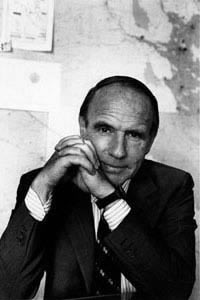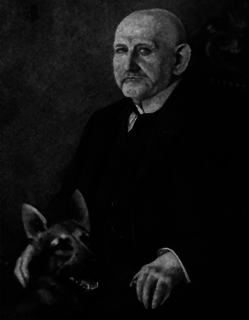A Quote by William Blake
But when he has done this, let him not say that he knows better than his master, for he only holds a candle in sunshine.
Related Quotes
Often nothing keeps the pupil on the move but his faith in his teacher, whose mastery is now beginning to dawn on him .... How far the pupil will go is not the concern of the teacher and master. Hardly has he shown him the right way when he must let him go on alone. There is only one thing more he can do to help him endure his loneliness: he turns him away from himself, from the Master, by exhorting him to go further than he himself has done, and to "climb on the shoulders of his teacher."
The real master is only a presence. He has no intentions of being a master. His presence is his teaching. His love is his message. Every gesture of his hand is pointing to the moon. And this whole thing is not being done, it is a happening. The master is not a doer. He has learned the greatest secret of life: let-go. The master has drowned his ego and the idea of separation from existence itself.
If idioms are more to be born than to be selected, then the things of life and human nature that a man has grown up with--(not that one man's experience is better than another's, but that it is 'his.')--may give him something better in his substance and manner than an over-long period of superimposed idiomatic education which quite likely doesn't fit his constitution. My father used to say, 'If a poet knows more about a horse than he does about heaven, he might better stick to the horse, and some day the horse may carry him into heaven'
Man... knows only when he is satisfied and when he suffers, and only his sufferings and his satisfactions instruct him concerning himself, teach him what to seek and what to avoid. For the rest, man is a confused creature; he knows not whence he comes or whither he goes, he knows little of the world, and above all, he knows little of himself.
Who knows better than a peasant farmer the agricultural conditions in his country or region? It is not always necessary to send an FAO expert to tell him what crops to grow or what seeds to use. Give him the seeds he asks for, and he will do the rest. Don't tell him how to renovate his irrigation system: give him the necessary equipment and he will do the job far better than us.
His master’s pain was his pain. And it hurt him more for his master to be sick than for him to be sick himself. When the house started burning down, that type of Negro would fight harder to put the master’s house out than the master himself would. But then you had another Negro out in the field. The house Negro was in the minority. The masses—the field Negroes were the masses. They were in the majority. When the master got sick, they prayed that he’d die. If his house caught on fire, they'd pray for a wind to come along and fan the breeze.
Who can justly say aught against Joseph Smith? I was as well acquainted with him, as any man. I do not believe that his father and mother knew him any better than I did. I do not think that a man lives on the earth that knew him any better than I did; and I am bold to say that, Jesus Christ excepted, no better man ever lived or does live upon this earth. I am his witness
The difference between the novice and the master is simply that the novice has not learnt, yet, how to do things in such a way that he can afford to make small mistakes. The master knows that the sequence of his actions will always allow him to cover his mistakes a little further down the line. It is this simple but essential knowledge which gives the work of a master carpenter its wonderful, smooth, relaxed, and almost unconcerned simplicity.
A disciple came to the celebrated Master of the Good Name with a question. “Rabbi, how are we to distinguish between a true master and a fake?” And the master of the good name said, “When you meet a person who poses as a master, ask him a question: whether he knows how to purify your thoughts. If he says that he knows, then he is a fake.
Men are four;
He who knows and knows not that he knows. He is asleep; wake him.
He who knows not and knows not that he knows not. He is a fool; shun him.
He who knows not and knows that he knows not. He is a child; teach him.
He who knows and knows that he knows. He is a king; follow him.
The heights by great men reached and kept
Were not attained by sudden flight,
But they, while their companions slept,
Were toiling upward in the night.






































